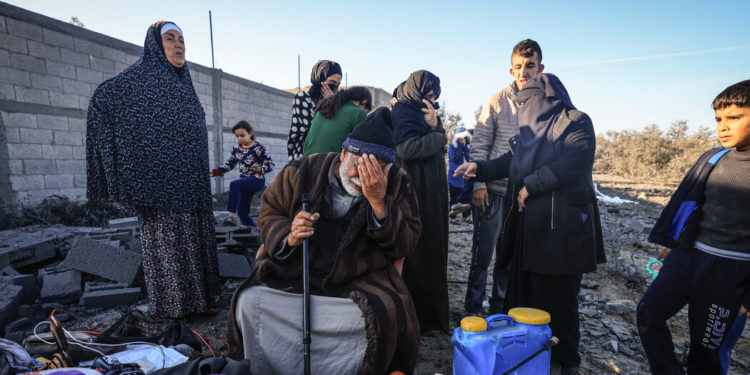By THE NEW YORK TIMES
Israel’s military said it had dismantled Hamas’s military capabilities in northern Gaza, and was now focusing on doing the same in the central and southern parts of the enclave, where it said it plans to take a different approach to destroying Hamas.
There were still some Hamas fighters in northern Gaza, but they no longer worked under an organized military command, and were limited in how much damage they could inflict, Rear Adm. Daniel Hagari, the chief military spokesman, said late Saturday in his daily news conference. Admiral Hagari didn’t provide details about control in the north, nor specify how the military’s operation farther south would be different.
For three months, since a deadly ambush on Oct. 7, Israel has been bombarding Gaza, killing more than 20,000 people, according to Gazan health authorities, and displacing a majority of the enclave’s residents. Nearly half of Gaza’s 2.2 million people are now crammed into an area near the Rafah border crossing with Egypt. A top United Nations official said on Friday that the enclave had become “uninhabitable” because of the dwindling supply of food, fuel and medicine.
There is no clear end in sight for the war, despite signs of discontent at home with how it has been handled. Prime Minister Benjamin Netanyahu has vowed to destroy Hamas as retaliation for the attack in southern Israel on Oct. 7 in which about 1,200 people, both civilians and soldiers, were killed and more than 200 abducted. About 100 people are still being held hostage in Gaza by Hamas and other militant groups.
But the first signs of Israel’s plans for the end of the war appeared last week, with Defense Minister Yoav Gallant floating a proposal to Mr. Netanyahu’s cabinet. While its unclear how much support it has, the plan seems to straddle the demands of the far more conservative members of the government and those of key allies, like the United States.
With the campaign in Gaza far from over, the prospect of a wider war hung over the region in the past week. A senior Hamas official was assassinated in Beirut, in a strike that U.S. and other officials have said was carried out by Israel. The Israeli government have not taken responsibility for the Hamas leader’s killing.
So far, Hezbollah, the Lebanese militia that supports Hamas, has held back from escalating fighting with Israel. They have launched missile and rocket attacks at Israel, but these have been contained to areas near the border.
Secretary of State Antony J. Blinken, who spent much of the early days of the war crisscrossing the region, is back in the Middle East, where he will travel to Jordan on Sunday. He already met with President Recep Tayyip Erdogan of Turkey and has other meetings planned. While the United States continues to support Israel, Mr. Blinken and others have called the deaths of civilians, especially children, unacceptable, and urged Israel to allow more humanitarian aid into Gaza.







Discussion about this post